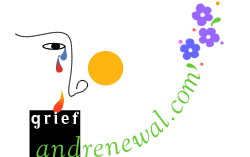|
||
 |
|
Empowering Widows in Development
Owen's group grew out of an important meeting on Widow's Rights that she organized at the 1995 Beijing Fourth United Nations Conference on Women. The Widow's Rights meeting identified the myth believed by many in the West that widows in developing countries are supported by their extended families and adult sons, local customs. The testimony of the widows at this meeting clearly revealed the brutal realities of many widow's lives, highlighting the failure of civil law, religion, and custom to protect women whose husbands have died. The consensus of the meeting was that discrimination against widows is so severe that action must be taken to bring their situation to the attention of the world. Some of the truths about widows in developing countries are listed at EWD's website (www.widowsrights.org/). They are summarized here: * When their husbands die widows in developing countries rarely have the right to inherit property or to have their rights enforced. They are frequently evicted from their property, their possessions taken from them, and often their children are also removed from their care and protection. * Thus most widows live in severe poverty * Even where laws exist to protect women whose husbands have died, the widows are generally not aware of their rights. Even when they are, the courts are often controlled by local customs which give all property to the women's in-laws, or their rights are lost in the confusion generated by the conflicting systems of family, local, religious and civil custom, all of which are patriarchal in conception and organization. * Widows are particularly vulnerable to violence, sexual abuse and rape. Domestic violence is particularly common. * Coercive traditional burial and mourning rites are often degrading and harmful to widows, and frequently involve extreme limitations of their personal freedom, and non-consensual sexual relations. * Homelessness, illiteracy, and poverty lead widows into exploitative work situations. * The extreme poverty and precariousness of the widow's live leaves their children, and particularly their daughters in extremely vulnerable positions. Daughters of widows are more likely to marry very young, and become widows themselves, thus recreating the cycle of poverty in their own lives and in the next generation. * Thousands of widows are very young; many are actually children. These facts about widows in developing countries are ever more urgent given the recent huge increase in the numbers of widows, especially young widows, due to AIDS, conflict and ethnic cleansing. Widows in developing nations are beginning to come together to work to gain their rights. However, this type of organization is in its very beginning stages. Owen's group writes that there is a need for changes in the rate of illiteracy, improvement in education, and equal access to the legal system. They note that research into the current needs of widows is necessary to enable governments in identifying and addressing their needs. EWD was set up to lobby and advocate for widows in developing countries at the local, national, and international level. It has been monitoring the status of widows in 10 countries (Nigeria, Ghana, Zambia, Mozambique, Zimbabwe, Bangladesh, India, Uganda, Tanzania, and Malawi). Reports on these countries can be found at their web site. EWD has received funding from Sweden and the United Kingdom. It is working with the United Nations on a proposal for workshops on widows' health in Africa and Asia. EWD is also planning on focusing on widows in Kosovo. A conference on widows is planned for early 2001 in London. For information on how you can help to further the work of EWD go to the Connections that Empower page and/or contact EWD through their website. return to top Copyright information: All written work on this site is copy righted and reproduced by permission of the author. The articles on this site may be shared for informational purposes, but cannot be reproduced for publication and monetary gain. |

